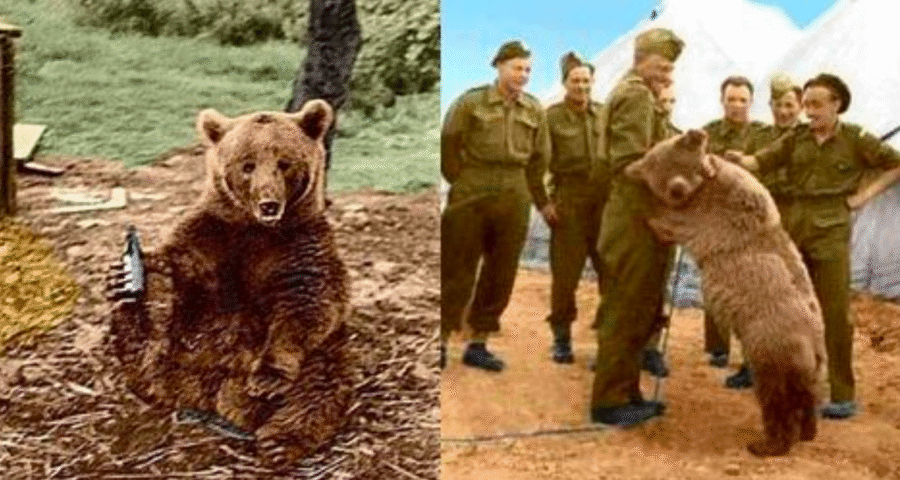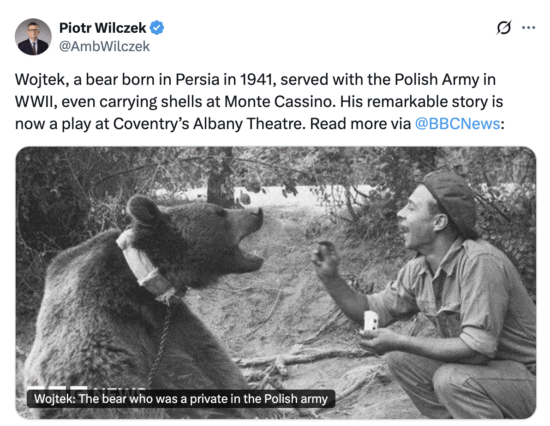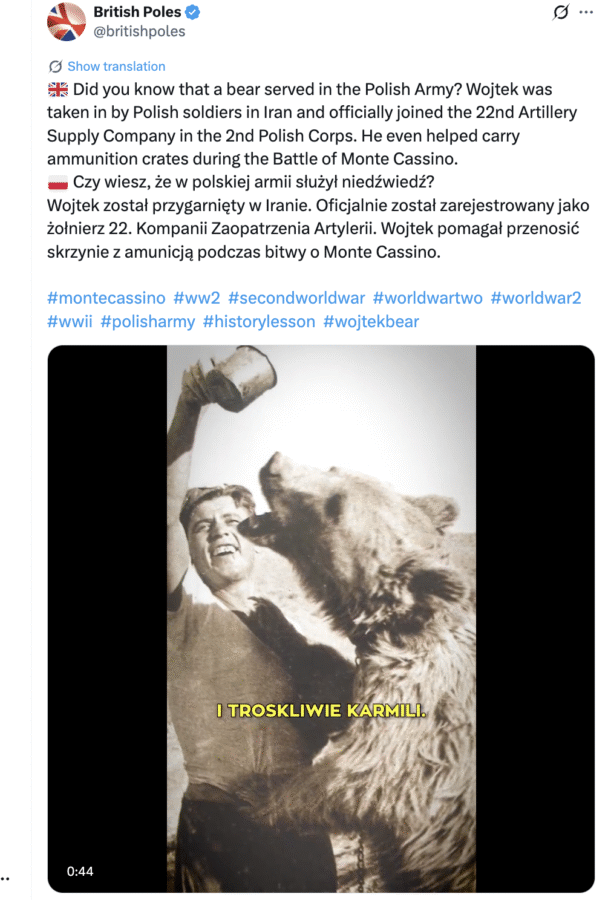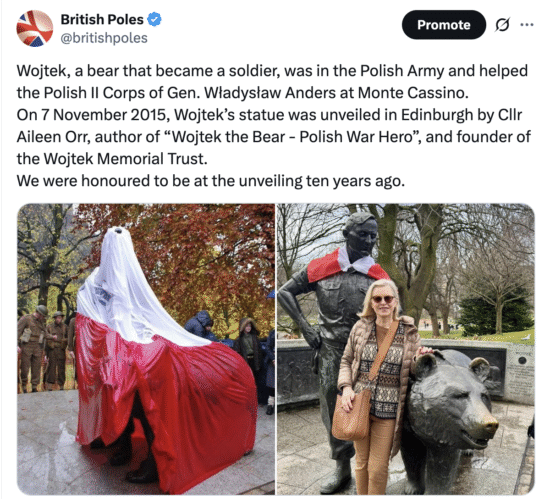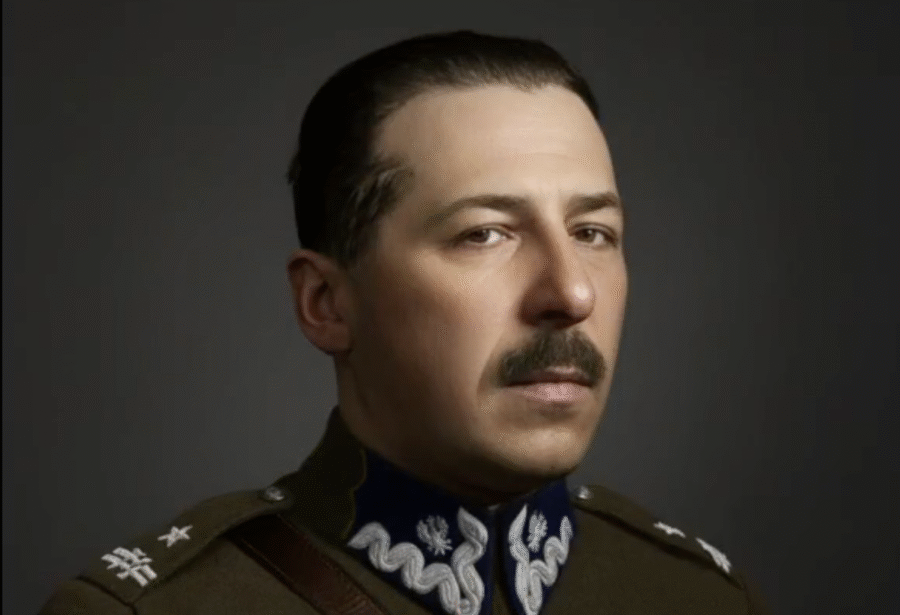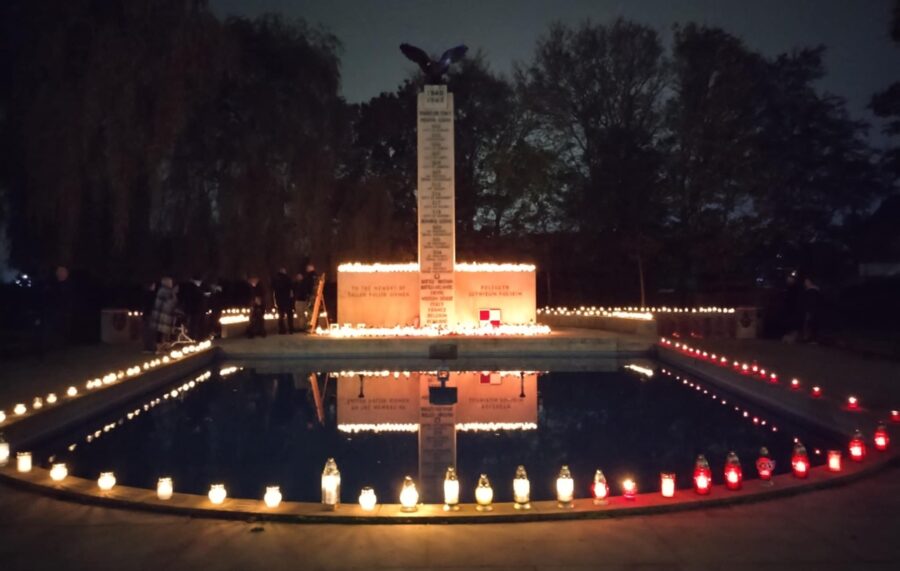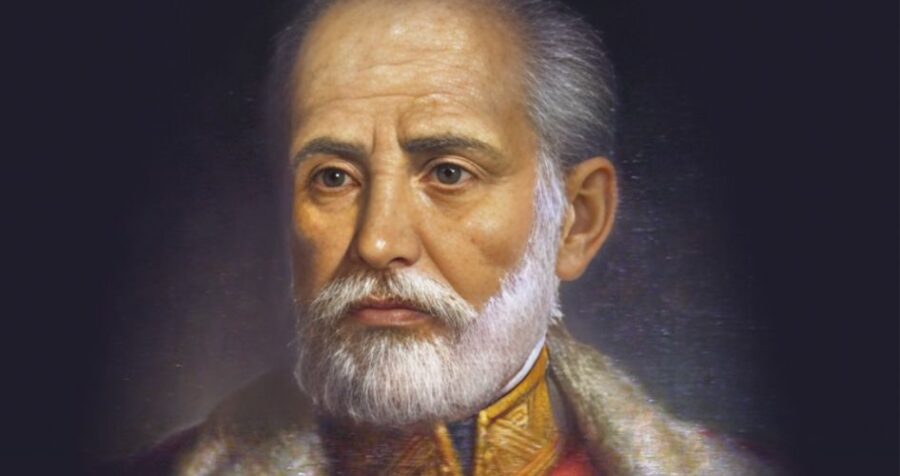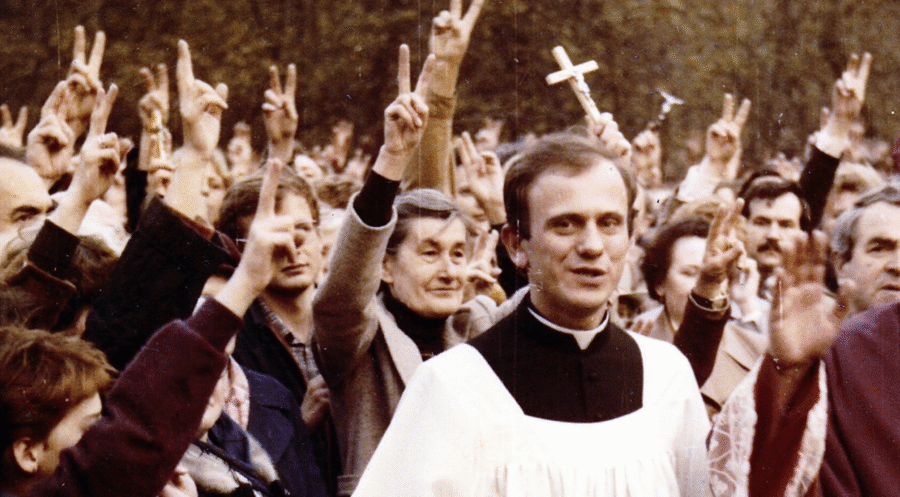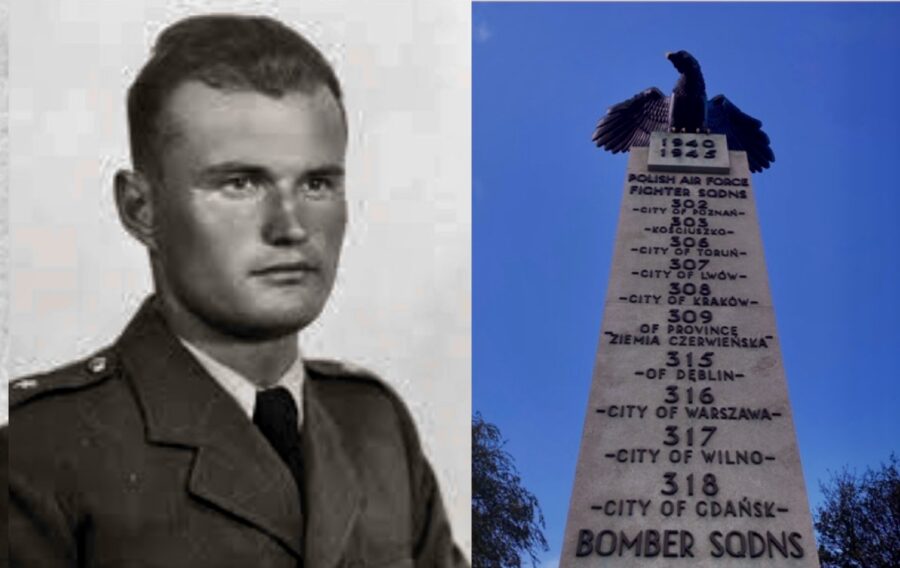The Polish bear-soldier Wojtek accompanied the Anders Army in its march from Iran to the victorious route through Italy’s battlefields. The Polish soldiers treated Wojtek as a symbol of their unity and courage.
In April 1942, Captain Stanislaw Nowicki’s unit was moved from Tehran to Ohvos. During one of the parties with the locals organised to kill time, the trumpeter of the unit, Zygmunt Kosinski, struck a bargain with his Persian companion at the party and bought a small Syrian bear from him.
He named him Hers, which simply meant ‘Bear’ in Persian. The little bear immediately became the favourite playmate of soldiers who missed their families and normal lives during peacetime. A few months later, when his guardian was posted to Great Britain, the bear was adopted by the 22nd Artillery Supply Company, commanded by Major Antoni Chełkowski. The bear was then renamed to a more familiar name.
His new name was Wojtek. He quickly became a legend and the hero of many anecdotes passed from mouth to mouth. His fame spread beyond the ranks of the 2nd Polish Corps. The British even made a wartime newsreel about him, that was successfully screened for many weeks in London.
“He liked tins of honey and how neatly he picked the honey out of the tins with his paws! And also beer. He would lie down on his back, take the bottle in his front paws, put it to his mouth and wouldn’t let it go until he had finished the whole thing. He would ride with the chauffeurs on the trucks, leaning with his front paws against the chauffeur’s booth. The Arabs, especially the children, would run at the sight of it as fast as they could,” recalled Leon Stanislawki a soldier of General Anders.
Wojtek followed the Anders Army through the Middle East. In early 1944 he found himself in Italy. During the Battle of Monte Cassino, the soldier-bear became the symbol of Polish resolve. Word among soldiers was that he helped as much as he could to unload crates of ammunition. This image of a bear carrying an artillery shell became the 22nd Company’s official badge, which the soldiers proudly wore on their uniforms.
After the end of the Second World War, Wojtek the Bear, along with many Polish soldiers, was transported to Scotland as the Polish Armed Forces operated within the British Army. After leaving the ranks of military he ended up in the Edinburgh Zoo, where he was visited by his company mates. Years of living among humans did not allow him to adapt to life among other bears, which posed a serious behavioural problem for Wojtek. He spent another 16 years of his life in a Scottish zoo and died in 1963.
In recent years Wojtek became a very important symbol of Poland’s 2 World War fight for independence that brought him fame among history buffs by creating monuments and countless gadgets related to the bear-soldier, loved by the Polish children.
One such monument was created 9 years ago in Edinburgh where the soldier-bear ended his combat trial.
On Saturday, 7 November 2015, a statue of Wojtek the bear a famous comrade of General Anders’ Second Polish Corps soldiers was unveiled in the Princess Street Gardens in Edinburgh city centre. The memorial, which cost around £250,000 was funded by a committee called the Wojtek Memorial Trust.
Wojtek also has many memorials dedicated to his story in the Polish cities of Warszawa, Kraków, Szczeciń, Żagań, Gryfin, Sopot and Poznań.
In the UK, Wojtek’s memorials are situated in London, Edinburgh, Grimsby, Duns and Penhors.
There are also three monuments of the Bear Soldier located in Italy.
Source: BBC, IPN, dzieje.pl, kraków.pl
Tomasz Modrzejewski
Photo: IPN


